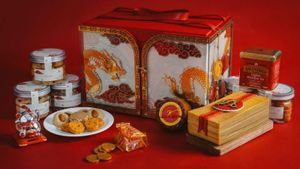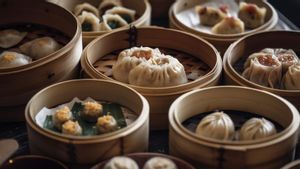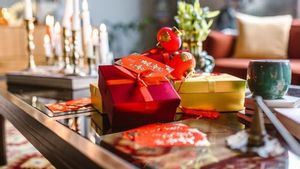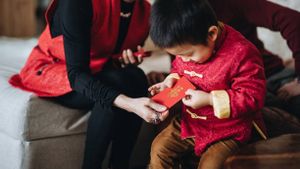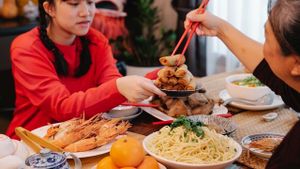YOGYAKARTA A dish has a symbolic meaning. Including foods eaten during the Chinese New Year. Foods usually have symbols of luck, joy, longevity, and prosperity. These foods, among others, are as follows.
In Chinese, 'fish' or Yu/yoo sounds like 'excess'. Fish is a traditional Chinese New Year dish served with various menus. Chinese people always want to get a surplus at the end of the year, because they think if they manage to save at the end of the year, then they can produce more in the following year.
Fish should be the last dish left, because it has a profitable homophonic because of the surplus every year. This is done in the northern part of the Yangtze River, but in other areas the head and tail of fish should not be eaten until the beginning of the year, which indicates the hope that the year will start and end with a surplus. Any fish that is processed and served, usually steam fish made from crude mas fish, mud goldfish, and catfish. Two fish are eaten by one on New Year's Eve, the other in the new year.
With a history of more than 1,800 years, Jiozi/jyauww-dzrr/) is a classic lucky food for the Chinese New Year, and traditional dishes eaten on Chinese New Year's Eve, are very popular in China, especially in North China. Launching China Highlights, Friday, February 9, dumplings are made like silver bullion, which is shaped like a second boat and ends up facing up. Legends say, the more buildings are eaten, the more money will be made in the new year.
The mum, dumplings made of meat and brewed vegetables are then mixed with a thin, elastic leather dough. They can be cooked by boiling, steamed, fried or roasted. This food symbolizes bringing wealth and treasure.
Chickens are said with ji which means 'lucky' and 'prosperity'. Chickens are usually served intact, including head and feet, to symbolize 'unity' and 'unity'.
Usually this dish is processed by boiling or roasting for a reunion meal with simple ingredients such as ginger or soybeans. Traditionally, a whole chicken is first presented to the ancestors and gods to get blessings and protection. Interestingly, chicken ceker is usually eaten by breadwinners in the family, because it can help them'strengthen' their wealth.
This cake made from glutinous and sugar rice, called Niangao, is a lucky food that is eaten on Chinese New Year's Eve. In Chinese, glutinous rice cake means "higher year after year". In the mind of Chinese people, this means that the higher you are, the more prosperous your business is. This is a common progress in life.
Lumpia, or Chmenju'n get his name because traditionally it is eaten during the Spring Festival. This is a Chinese New Year dish that is very popular in East China.
Lumpia is a dim sum Kanton dish in the form of a cylindrical roll bread filled with vegetables, meat, or something sweet. The contents are wrapped in a thin dough wrapper, then fried until the spring is given the golden yellow color. In Indonesia, the most popular is the Semarang spring which contains rebung and chicken unified meat. The shape of the cylinder is fried until the golden color is the hope for prosperity.
SEE ALSO:
Long-lived noodles symbolize hope for a long life. Because it is made special, it is longer than ordinary noodles and is not cut. Can be served by fried or boiled together with a mixture of typical spices.
Selada, bok choy, and hooks mark the good meaning of next year. The three signifies season semi', estimation', energy', progress', and richness'. Celada in Chinese and Canton, if spoken, sounds similar to the pronunciation of a meaningful word becoming rich. While bok choy, can symbolize wealth, luck, and good fortune. For hooks, or known as Chinese broccoli, it means harmony.
In addition to the food that symbolizes luck to be consumed during the Chinese New Year above, don't miss eating fruits. Certain fruits eaten during the Chinese New Year period include keprok oranges and golden Balinese oranges symbolizing wealth and luck.
The English, Chinese, Japanese, Arabic, and French versions are automatically generated by the AI. So there may still be inaccuracies in translating, please always see Indonesian as our main language. (system supported by DigitalSiber.id)



